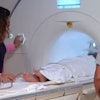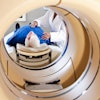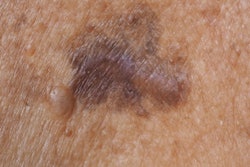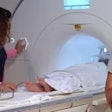CHICAGO -- A new breast cancer risk assessment technique that uses mammography biomarkers shows no racial bias, according to research presented November 29 at the RSNA meeting.
The findings offer another way to foster breast cancer early detection, improve patient survival rates across different populations, and reduce disparity in survival rates, said study lead author Leslie Lamb, MD, of Massachusetts General Hospital (MGH) in Boston in a statement.
“In the domain of precision medicine, risk-based screening has been elusive because we have not been able to accurately evaluate a woman’s risk of developing breast cancer,” Lamb said. “Even the best existing traditional risk models do not perform well on the individual level.” However, mammograms contain highly predictive biomarkers of future cancer risk.
Black women demonstrate the lowest five-year relative survival rate for breast cancer among all racial and ethnic groups, a statistic that translates to a 6% to 8% disparity in five-year survival rates between Black and white women across all breast cancer types.
One reason for this disparity may be that traditional models likely have racial biases due to the populations on which the models were developed, according to Lamb. It is important that risk models are developed that are applicable across different populations, she added, noting that several of the commonly used models were developed on predominantly Caucasian populations.
Lamb and colleagues sought to assess the performance of an image-based deep learning risk assessment model for predicting both future invasive breast cancer and ductal carcinoma in situ (DCIS) across multiple races. They conducted a study that included 129,340 routine bilateral screening mammograms performed in 71,479 women between 2009 to 2018 with five-year follow-up data. Of the total exams, 106,839 were of white women; 6,154 of Black women; 6,435 of Asian women; 6,257 of women of other races; and 3,655 of women in unknown racial categories. The investigators used patient demographic data taken from electronic medical records and identified instances of cancer from a regional tumor registry.
The team assessed the AI model’s performance by comparing areas under the curve (AUC). Prior studies have estimated the AUCs of traditional risk model performance as measured by the AUC score, the predictive rate of the model on a scale of 0 to 1, in the range of 0.59-0.62 for White women, with lower performance in women of other races.
 Mammograms contain highly predictive biomarkers of future cancer risk. A deep learning model using screening mammography alone can accurately discriminate patients at risk of developing DCIS and invasive disease across races, work at Massachusetts General Hospital suggests. Image and caption courtesy of RSNA.
Mammograms contain highly predictive biomarkers of future cancer risk. A deep learning model using screening mammography alone can accurately discriminate patients at risk of developing DCIS and invasive disease across races, work at Massachusetts General Hospital suggests. Image and caption courtesy of RSNA.
For this study, the model's predictive rate for both DCIS and invasive cancer was 71% across all patients, Lamb's group found. The AUCs for predicting future DCIS was 0.71 in Asian patients, 0.74 in Black patients, and 0.71 in white patients. The AUCs for predicting invasive cancer was 0.67 in Asian patients, 0.73 in Black patients, and 0.71 in white patients. There was no evidence of a significant difference in predicting DCIS or invasive cancer across Asian, Black, and White patients.
"Our results suggest that the deep learning model is able to translate the full diversity of subtle imaging biomarkers in the mammogram, beyond what the naked eye can see, that can accurately predict a woman’s future risk of both DCIS and invasive breast cancer,” Lamb said. “The image-only risk model can provide increased access to more accurate, equitable, and less costly risk assessment.”
Senior author Constance Lehman, MD, PhD, of Harvard Medical School in Boston said the team is poised to translate these findings into improved clinical care for patients. “This is a particularly exciting domain for AI, as it demonstrates the opportunity to apply ‘AI for good’ -- to reduce well-known racial disparities in risk assessment,” she said.




















